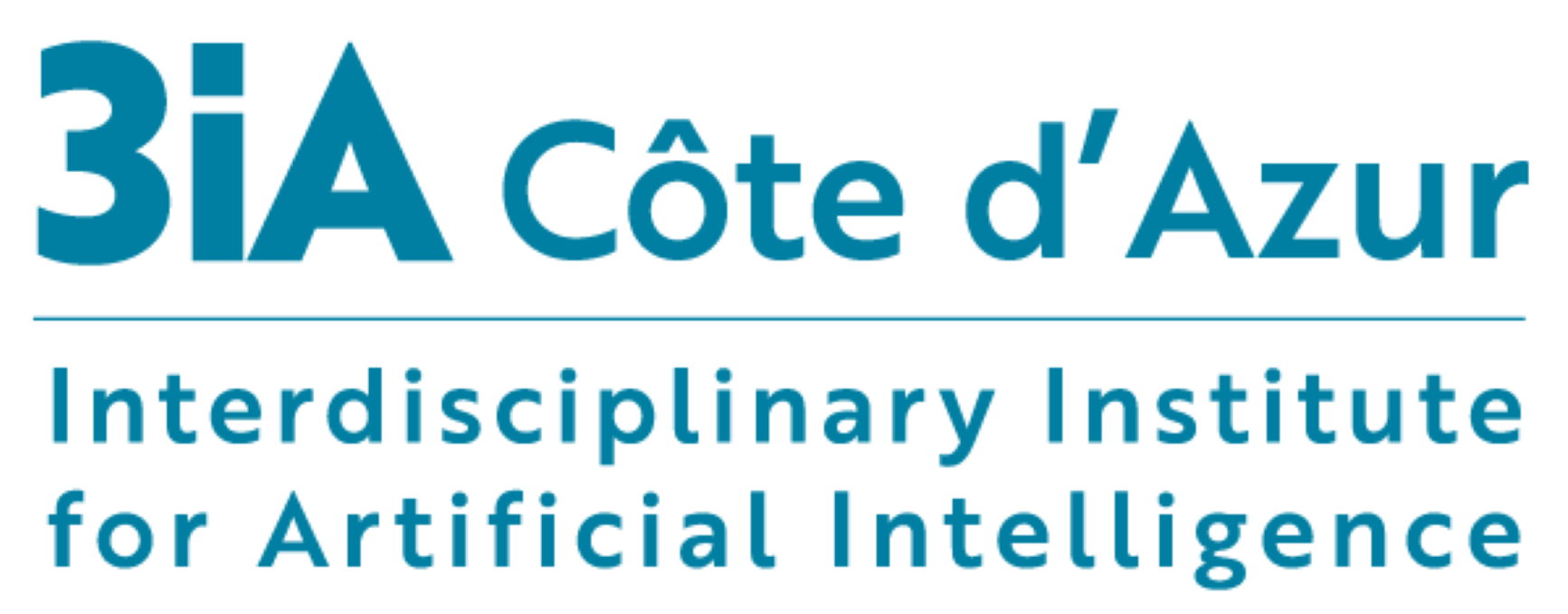Loading...
3IA Côte d'Azur - Interdisciplinary Institute for Artificial Intelligence
3IA Côte d'Azur est l'un des quatre "Instituts interdisciplinaires d'intelligence artificielle" créés en France en 2019. Son ambition est de créer un écosystème innovant et influent au niveau local, national et international. L'institut 3IA Côte d'Azur est piloté par Université Côte d'Azur en partenariat avec les grands partenaires de l'enseignement supérieur et de la recherche de la région niçoise et de Sophia Antipolis : CNRS, Inria, INSERM, EURECOM, SKEMA Business School. L'institut 3IA Côte d'Azur est également soutenu par l'ECA, le CHU de Nice, le CSTB, le CNES, l'Institut Data ScienceTech et l'INRAE. Le projet a également obtenu le soutien de plus de 62 entreprises et start-ups.
Derniers dépôts

Documents en texte intégral
759
Notices
332
Statistiques par discipline
Mots clés
Uncertainty
Deep Learning
Brain-inspired computing
Autoencoder
RDF
Neural networks
Geometric graphs
Linked data
Topological Data Analysis
Spiking Neural Networks
Grammatical Evolution
Federated learning
Adversarial classification
Anomaly detection
SHACL
Clinical trials
Persistent homology
Web of Things
Privacy
Diffusion strategy
Medical imaging
Co-clustering
Image segmentation
Hyperspectral data
Semantic Web
Change point detection
Dense labeling
Unsupervised learning
FPGA
Electrocardiogram
Graph neural networks
Argument Mining
Argument mining
Latent block model
Knowledge graphs
Autonomous vehicles
Cable-driven parallel robot
Artificial intelligence
Information Extraction
COVID-19
CNN
Graph signal processing
Convergence analysis
Isomanifolds
Extracellular matrix
Semantic segmentation
Convolutional neural networks
Federated Learning
Consensus
Apprentissage profond
Optimization
Healthcare
Extreme value theory
Arguments
Sparsity
Convolutional neural network
Predictive model
Diffusion MRI
Artificial Intelligence
53B20
Biomarkers
Convolutional Neural Networks
Caching
Clustering
Echocardiography
Explainable AI
Ontology Learning
FDG PET
NLP Natural Language Processing
Chernoff information
Fluorescence microscopy
Multi-Agent Systems
SPARQL
Domain adaptation
Machine learning
Hyperbolic systems of conservation laws
Linked Data
NLP
Contrastive learning
Deep learning
Alzheimer's disease
Computing methodologies
Correlation matrices
Image fusion
Electrophysiology
Distributed optimization
Macroscopic traffic flow models
Semantic web
OPAL-Meso
Visualization
Excursion sets
Spiking neural networks
Coxeter triangulation
Knowledge graph
Atrial Fibrillation
Atrial fibrillation
Computer vision
Super-resolution
Segmentation
Computational Topology


